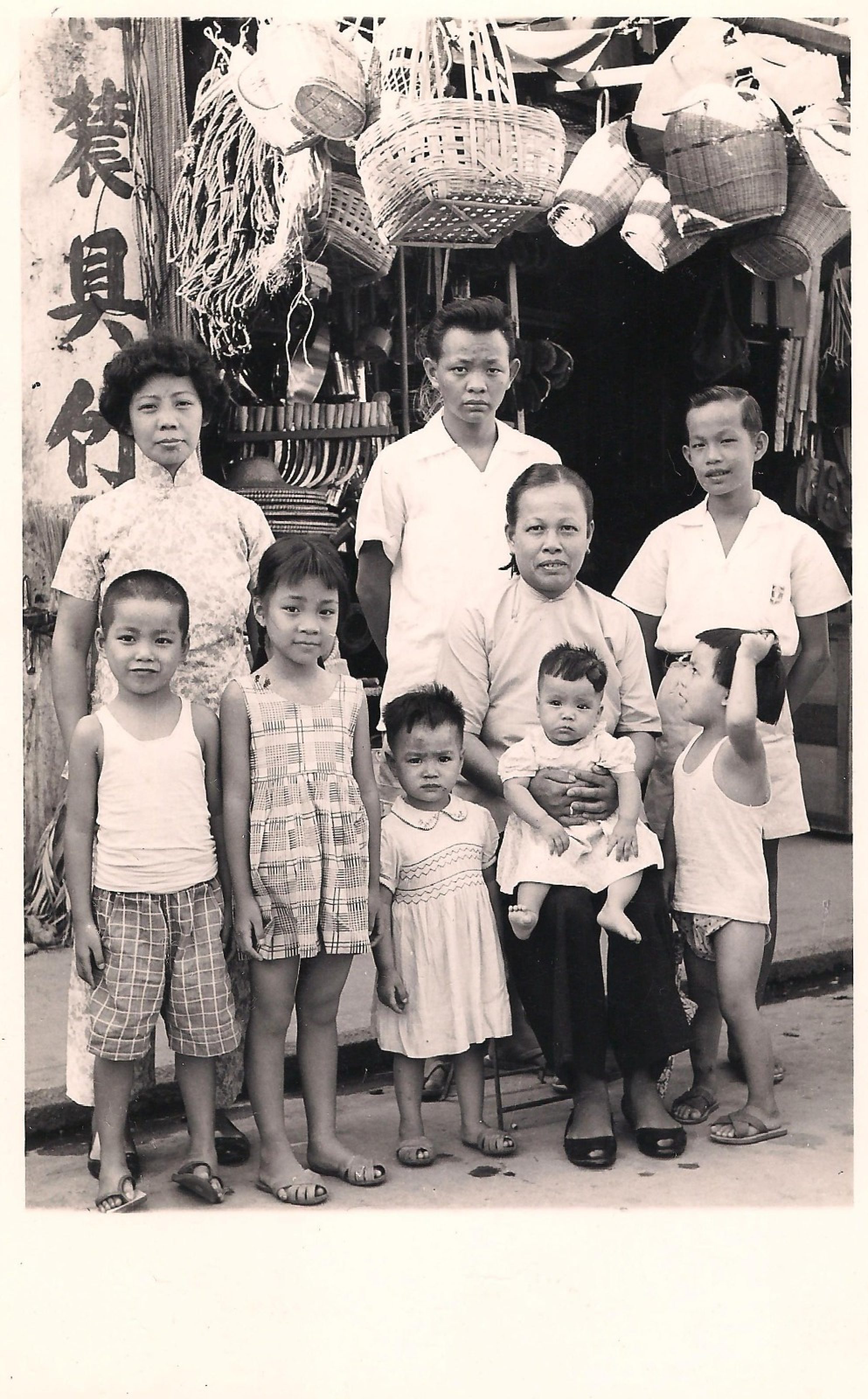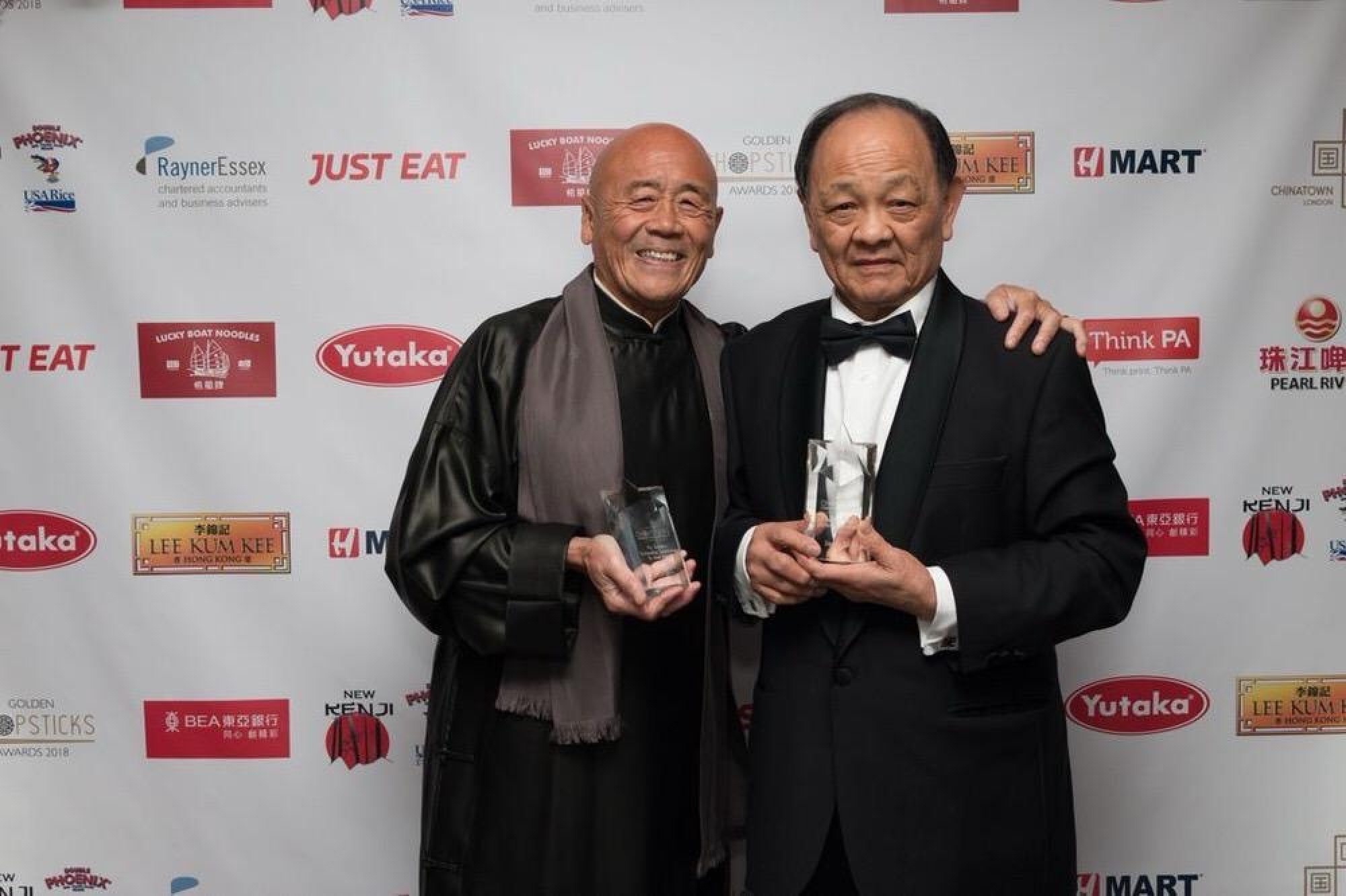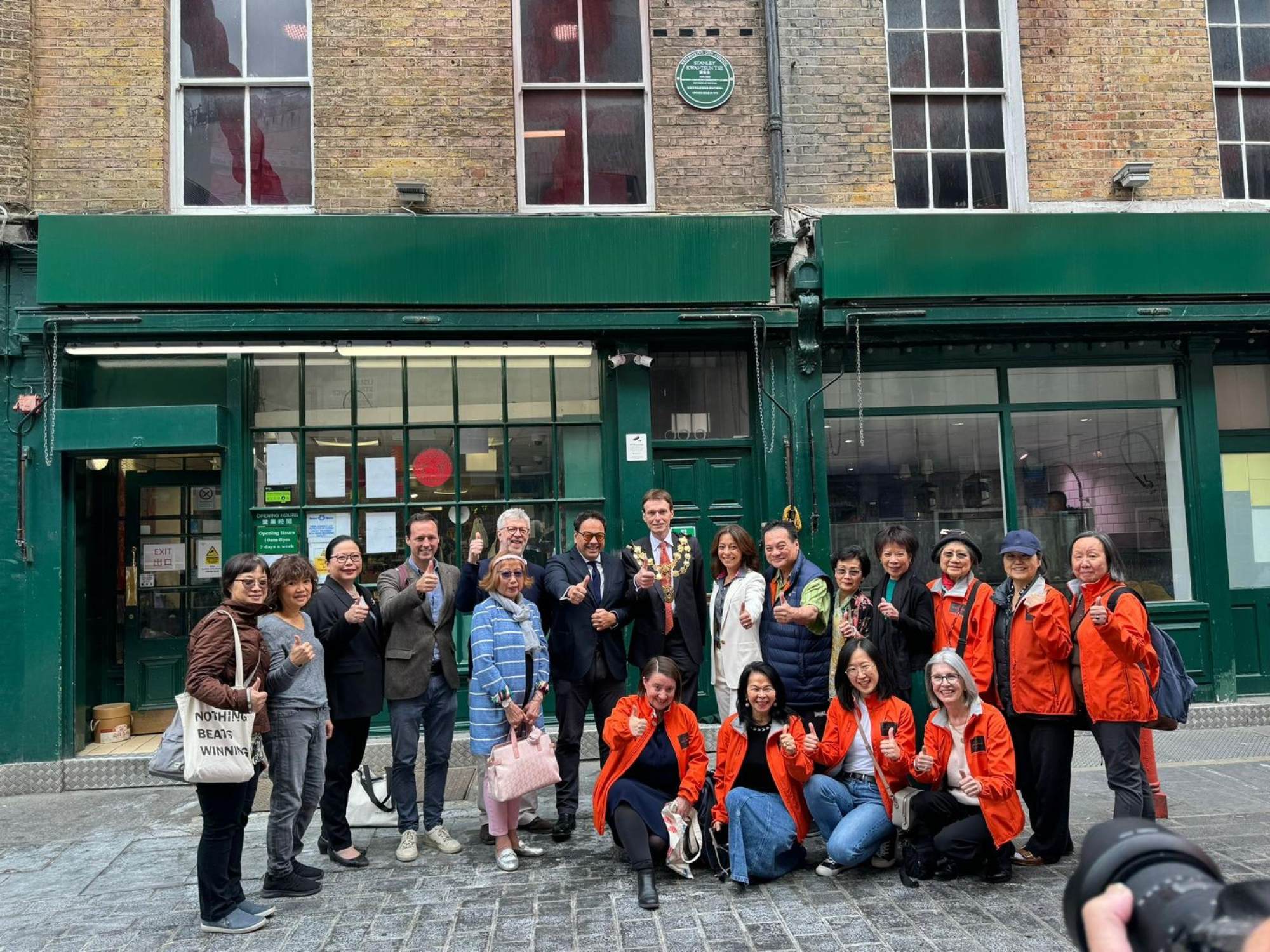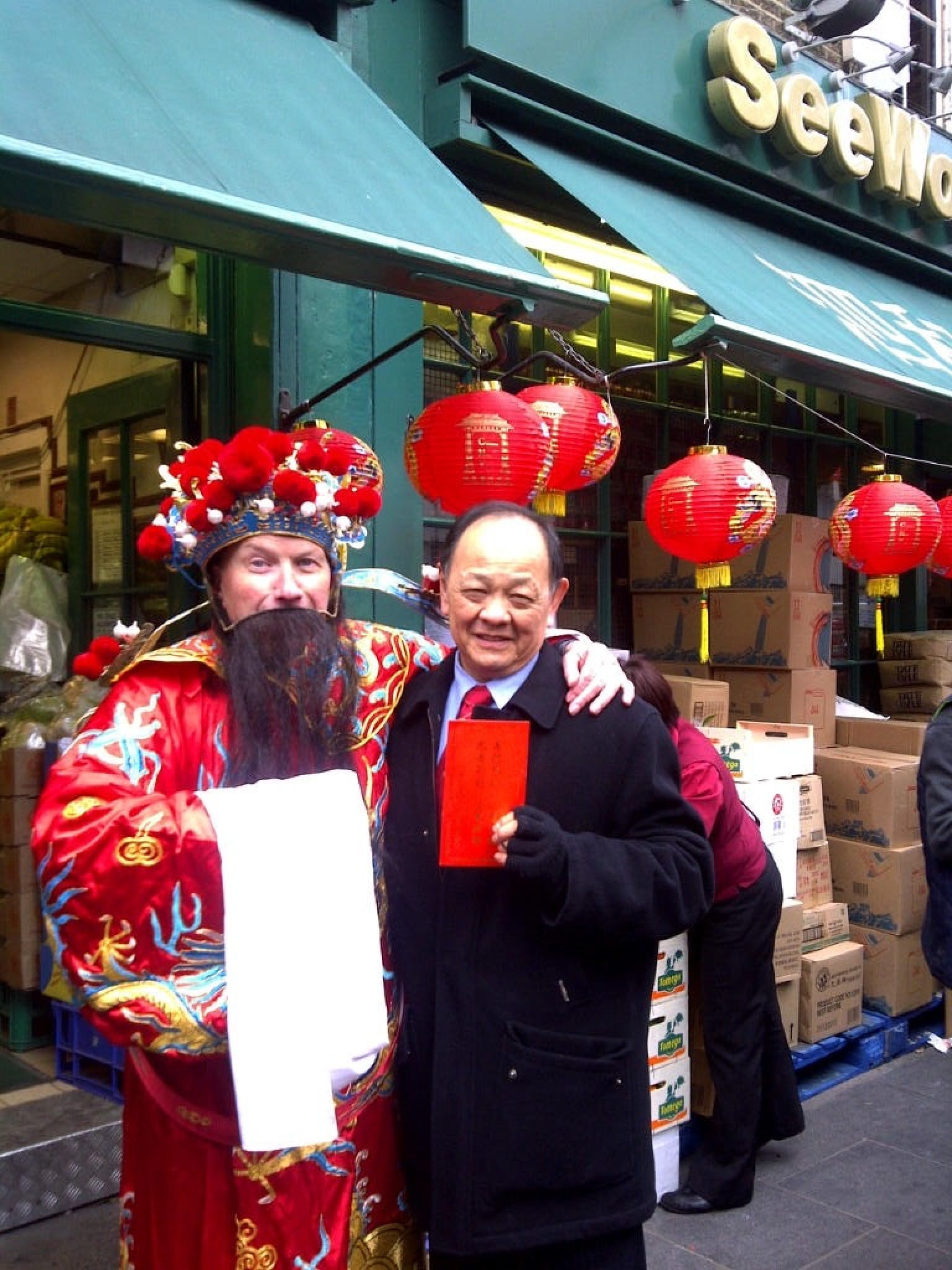“[The plaque] is a testament to what a truly remarkable businessman and an early adopter my father was. He predicted opportunities and saw what needed to change,” says Lucy Yuk-king Mitchell, Tse’s daughter and the former managing director of See Woo.
“Not many people know this, but my father was the first person to import bak choy to the UK.”
It’s more than just a plaque; it’s a plaque that says we’re Chinese, we’re here and we belong in British society
The story of See Woo began long before Mitchell was born. The Tse family ran a small grocery store of the same name in Yuen Long, in Hong Kong’s New Territories; the name was chosen by Tse’s uncles, who set up the store.
After his father died, his mother and her sister-in-law ran the business. Meanwhile, Tse left Hong Kong for the UK in 1961 – he was only 17 at the time – following his older brother Issy to find work and support his family. Their brother Tony would follow a few years later.
Like many Hong Kong migrants to Britain at the time, Tse ended up working for a number of Chinese restaurants, including in Shrewsbury and Market Harborough in the Midlands, and Stanmore in Greater London.

He went from dishwasher to line cook to head chef.
It wasn’t long before Tse bought his first restaurant, Happy Star, a Chinese place in northwest London which had been owned by British comedian Max Bygraves and where he had previously worked.
Lantern House is also where Tse met his wife, Carolyn Toynton, who was a regular customer at the restaurant; they married in 1968.
After more than a decade working in various hospitality roles, Tse and his brothers Tony and Issy noticed a gap in the market.
They and their restaurateur friends struggled to find high-quality, specialist Asian ingredients for cooking. They opened the British iteration of See Woo to meet the demand.
The company had humble beginnings, operating from a garage in St Albans, north of London, then a small lock-up store in Bermondsey, London, and eventually, in 1975, two-storey premises on Lisle Street, in London’s Chinatown – its flagship store.
See Woo became known for stocking a wide selection of fresh Asian vegetables such as bamboo shoots, baby corn and water chestnuts, as well as pantry essentials not found in Western supermarkets. It had aquariums full of live lobsters, a fishmonger, and a butcher.
See Woo quickly grew from a small business into an empire with the opening of two more supermarkets – in London’s Greenwich and Glasgow in Scotland – as well as a factory and two restaurants. It employed over 400 people and supplied home kitchens, restaurants and other supermarkets across the UK.
In 1986, it established the Way-On Foods factory in Park Royal, west London, to produce items not easily available at the time, such as fish balls and fresh rice noodles.
Mitchell says she has been involved in the family business since she was seven or eight. “From riding in the back of delivery vans to packing cashews and stocking shelves as a summer job, I was always grafting,” she recalls.

After university, Mitchell worked in IT for American software companies. During her eight-year career she travelled and moved around Europe, the Middle East and Africa before leaving the corporate world to start a family – and return to See Woo.
“I was sceptical about rejoining the family business officially because it’s a challenge to take a business from one generation to generation,” she says.
“You inherit a lot of burdens, expectations and pressures, but at the same time it’s really exciting because you take all the great parts of the business and reinvent it to some degree.”
Initially, Mitchell helped with sales and marketing on a part-time basis, but over time her responsibilities grew.
In 2017, See Woo underwent a demerger because Tse and his brother had different visions for the future of the business.
From then on, Mitchell and Tse took over running the shop in London’s Chinatown, Way-On Foods and a new mainstream wholesale distribution business, while Tony Tse looked after the original wholesale operations in Greenwich and Glasgow.

“My uncle passed away suddenly in 2019 and we had to completely close down the Greenwich and Glasgow cash and carry,” Mitchell says with a sigh.
During the pandemic, Mitchell began bringing in outside investors and at the beginning of this year stepped away from managing its day-to-day operations. She remains a shareholder in See Woo.
“It’s been a real baptism of fire. It’s incredibly sad and such a shame, but the business never recovered from the split,” she says.
“The market had completely changed post-pandemic. There was a lot more competition and other stores had more choice or had more specialised products. Whether it’s Chinese, Korean or Japanese, it’s much more challenging today.”
In May, there was a ceremony for the plaque unveiling that was attended by local residents, community centre members, charity members, volunteers and politicians.
My father came to the UK with virtually nothing […] but he worked like a Trojan for the benefit of his family and others
The building that houses See Woo already had a plaque dedicated to cinema historian Wilfred Ernest Lytton Day, who had a shop there until 1969. Now Tse’s green plaque sits proudly above the entrance to the Chinatown shop on Lisle Street.
“It’s more than just a plaque; it’s a plaque that says we’re Chinese, we’re here and we belong in British society,” says Lai Sheung-man of China Exchange, a Chinese arts centre and charity celebrating Chinese culture and history.
“It’s encouragement for the next generation, showing a sense of belonging and that you can do anything you put your mind to,” added Lai, who knew Tse and who attended a ceremony in which the plaque was unveiled.
It is apt recognition. Aside from founding a game-changing Chinese grocery supermarket chain that made ingredients more accessible, Tse was a key figure in the Chinese community and served as the president of London’s Chinatown.

After his death, Mitchell applied for a plaque to commemorate her father’s work and contributions to London’s Chinatown. The application process took two years, but he is now the first person of Chinese heritage in Chinatown to be honoured with a green plaque.
“I think it’s really important not to forget where it all started,” Mitchell says. “My father came to the UK with virtually nothing. He had a very poor childhood, but he worked like a Trojan for the benefit of his family and others.”







